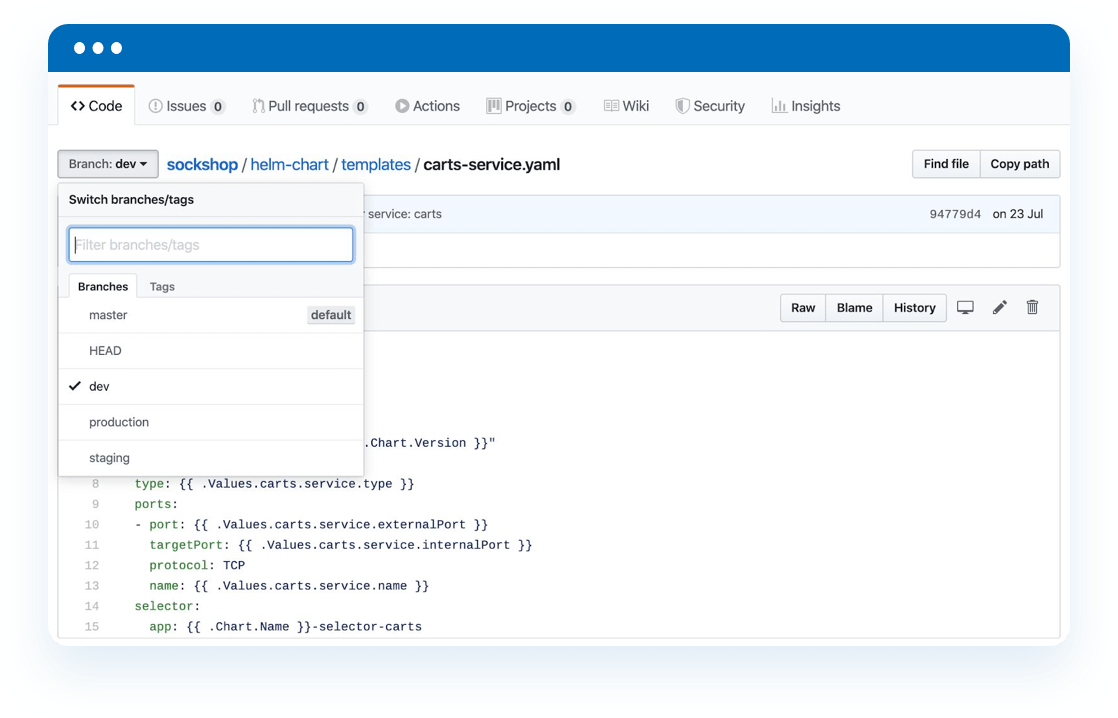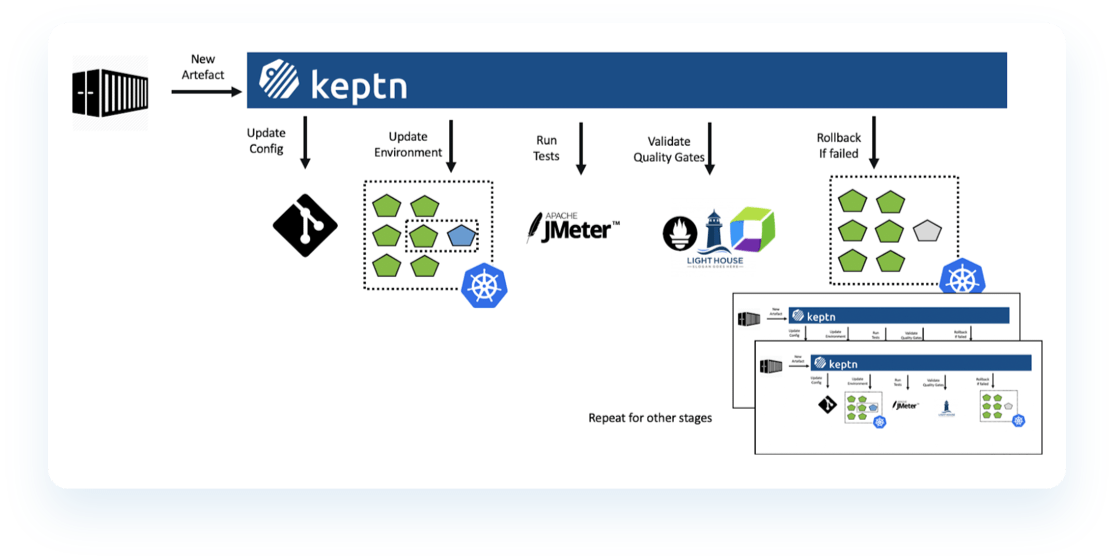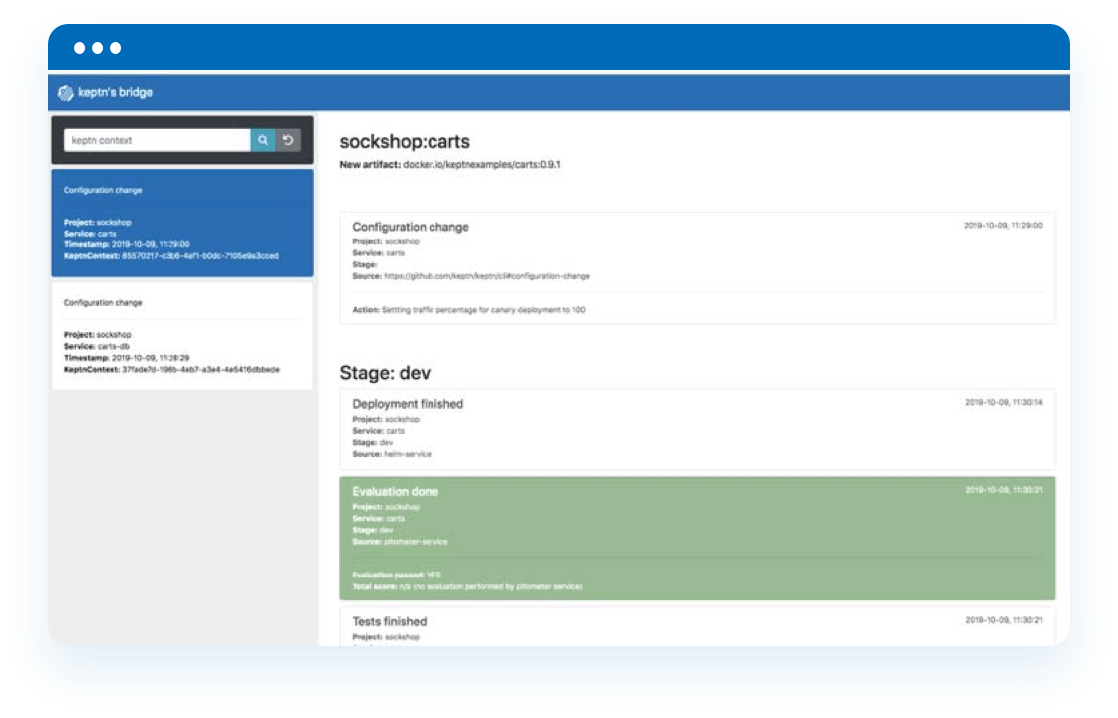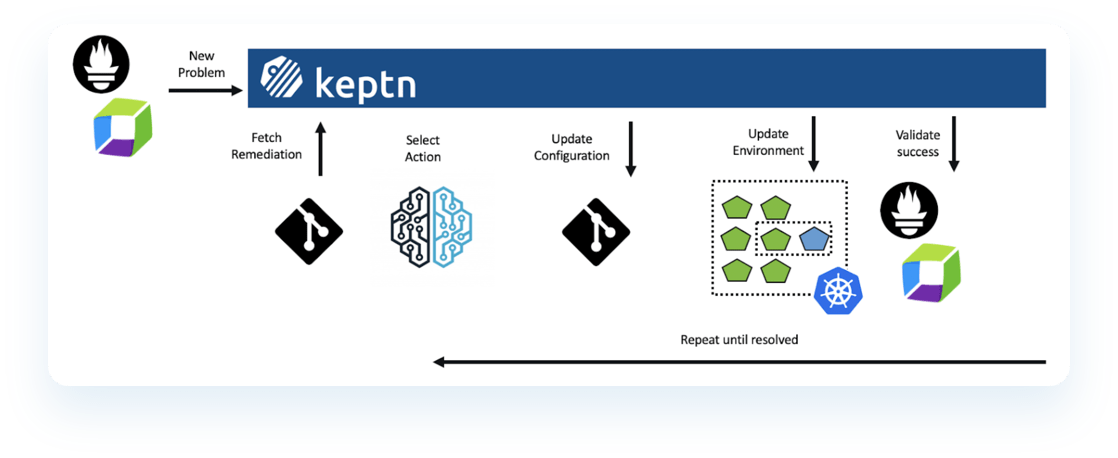/ keptn /
kep • tn
Definition of keptn
an event-based control plane for continuous delivery and automated operations for cloud-native applications.
Benefit of Keptn for different personas
Developers
to focus on code instead of writing tons of configuration files
DevOps
to focus on tools instead of building complex pipelines
SREs
to automate processes instead of manually handling issues
Keptn only requires a plain Kubernetes cluster
Just download the Keptn CLI
curl -sL https://get.keptn.sh | sudo -E bash
And deploy Keptn on your cluster
keptn install --platform=[aks|eks|gke|openshift|pks|kubernetes]
Keptn will be installed with the control plane and all batteries-included services.

Define your application delivery flow
Define your delivery process using a shipyard file and create a new project using your shipyard.yaml file:
keptn create project sockshop
--shipyard=./shipyard.yaml
stages:
- name: "dev"
deployment_strategy: "direct"
test_strategy: "functional"
- name: "staging"
deployment_strategy: "blue_green_service"
test_strategy: "performance"
- name: "production"
deployment_strategy: "blue_green_service"
remediation_strategy: "automated"
Simply onboard services to keptn
Just onboard a service by providing an initial minimal set of Helm charts allowing to deploy your service

Your service will be onboarded automatically. Keptn will create the proper Helm charts and Istio configuration behind the scenes. All configuration is stored GitOps-style in a Git repository, which you can link to any upstream repository.
keptn onboard service carts
--project=sockshop --chart=./carts
Link Keptn to your CI workflow
New workflows in Keptn are triggered by sending a new-artifact event either via the CLI or the Keptn API. You can easily add this your Continuous Integration scripts.
keptn send event new-artifact --project=sockshop
--service=carts-db --image=mongo

Keptn will then start the deployment automatically, following the strategy defined in the shipyard file. After the deployment, Keptn starts the tests, evaluates the quality gates, and in case of a problem, Keptn rolls back the last changes.

Get full observability for your Keptn workflows
Keptn traces every event and all resulting actions and provides real-time tracing information and a powerful API enabling full visibility of every deployment and operations triggered via Keptn.
Provide remediation information to enable automatic remediation

Provide a remediation file as part of your
deployment or service onboarding enabling
automatically executing remediation workflows
remediations:
- name: cpu_usage
actions:
- action: scaling
value: +1
- name: high_load
actions:
- action: enableFeature (staticContent)
keptn add-resource --project=sockshop
--service=carts --stage=production
--resource=remediation.yaml
--resourceUri=remediation.yaml
Remediation command
{
"type": "sh.keptn.events.problem",
"shkeptncontext":
"08735340-6f9e-4b32-97ff-3b6c292bc509",
"data": {
"ImpactedEntity": "carts-primary",
"ProblemTitle": "cpu_usage_sockshop_carts",
"State": "OPEN"
},
}
keptn send event --file=problem.json
Get in touch!
Whether you are an end user with a strong opinion or you want to participate in the project, we’d love to hear from you! You can find more information about how to reach us in the Keptn community repo
Be part of the movement and participate in our public community meetings every other Thursday!

